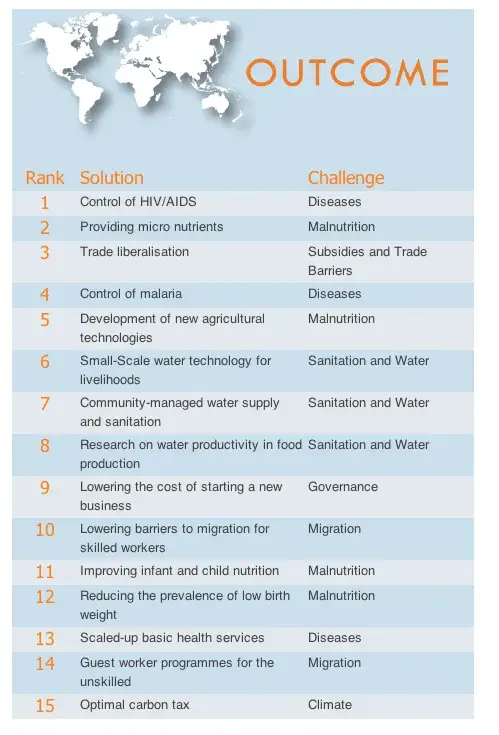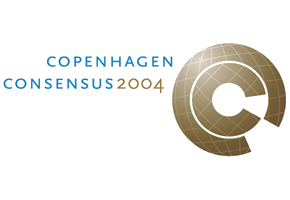Outcome
The goal of Copenhagen Consensus was to set priorities among a series of proposals for confronting ten great global challenges. A panel of economic experts, comprising eight of the world’s most distinguished economists, was invited to consider these issues.
The expert panel found that solutions to HIV/AIDS, hunger, free trade and malaria should be the highest priorities.
The panel assigned the highest priority to new measures to control and treat HIV/AIDS. Spending assigned to this would yield extraordinarily high benefits. Hunger was number two on the expert’s list. Diseases caused by iron, zinc, iodine and vitamin A deficiency can be resolved by providing micro-nutrients. This would have an exceptionally high ratio of benefits to cost. The experts recommended investing $12 billion to resolve this problem. Free trade was number three on the expert list. The costs would be very low, while the benefits would be extremely high – namely up to $2400 billion a year.
Based on considering all of the Copenhagen Consensus research papers, and with specific regard to the costs and benefits of the different solutions presented in the challenge papers, the panel ranked the proposals, in descending order of desirability, is shown below.
The Expert Panel's Ranking
Each paper was discussed at length with its principal author and with two other specialists who had been commissioned to write critical appraisals, and then the experts met in private session. Based on the costs and benefits of the solutions, the panel ranked the proposals, in descending order of desirability.


